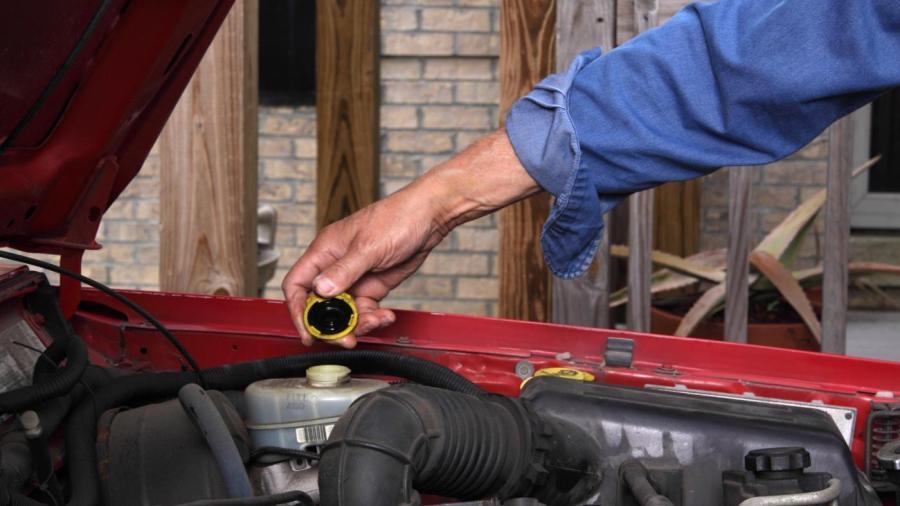What Happens If the Brake Fluid Is Low in a Car?

Motor vehicles with low brake fluid require a mechanical inspection to avoid experiencing a brake system failure. Low brake fluid typically means that a vehicle’s brake pads are wearing thin or that there is a leak in the brake line system. Neglecting to address low brake fluid is bound to lead to potentially unsafe and expensive problems.
According to DMV.org, low brake fluid is often a sign that there is air in the brake line. This is also sometimes evident in brakes that develop a “squishing” sensation when pressure is applied to the pedal. DMV.org recommends that drivers who notice the latter check their brake fluid level and, if the fluid falls below the “add” line in the reservoir, make an appointment with a brake specialist.
Military.com reports that vehicles with anti-lock braking systems often alert drivers to the situation through a dashboard warning light. Older braking systems do not necessarily do this, however, requiring drivers to be alert to changes in brake performance.
The consumer website Autos.com warns that brake fluid leaks are potentially dangerous in that they reduce the pressure of the braking system, thereby diminishing brake performance. Left unaddressed such a leak is likely to lead to a total brake failure.





